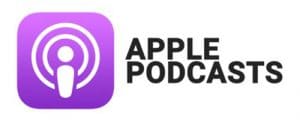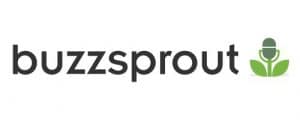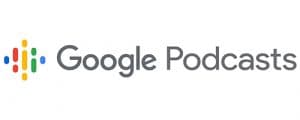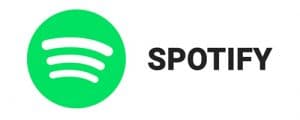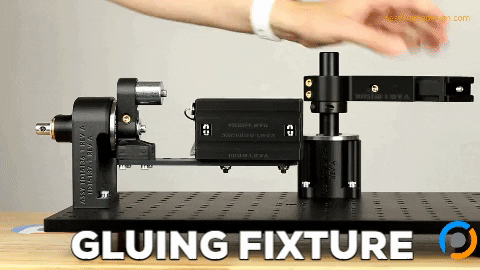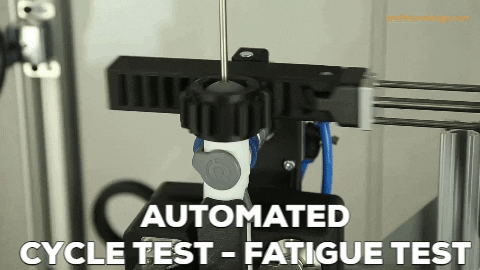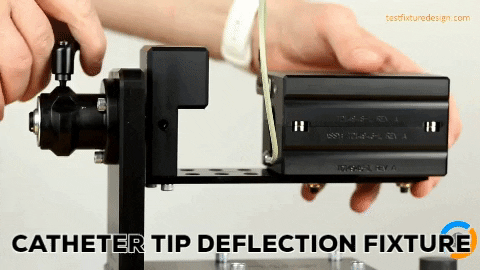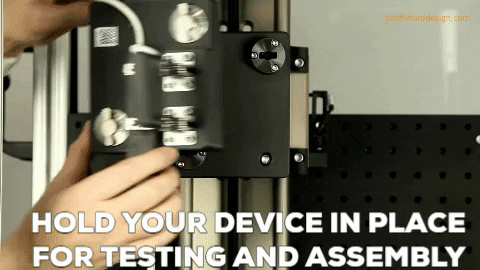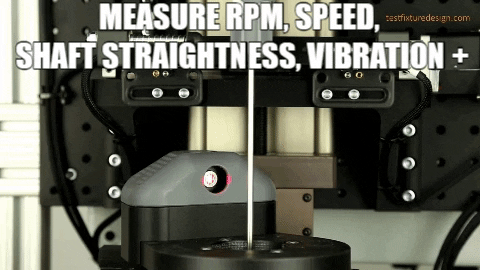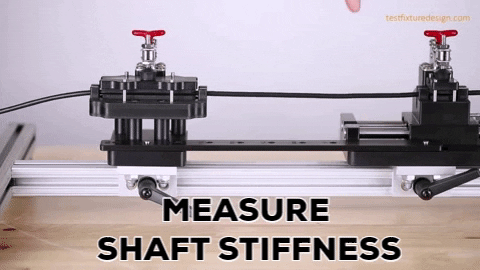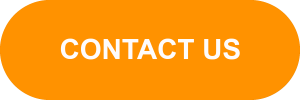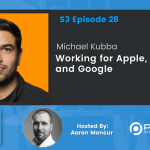Ray Baker | Brazing, Loyalty, & Leveraging Application Specialists
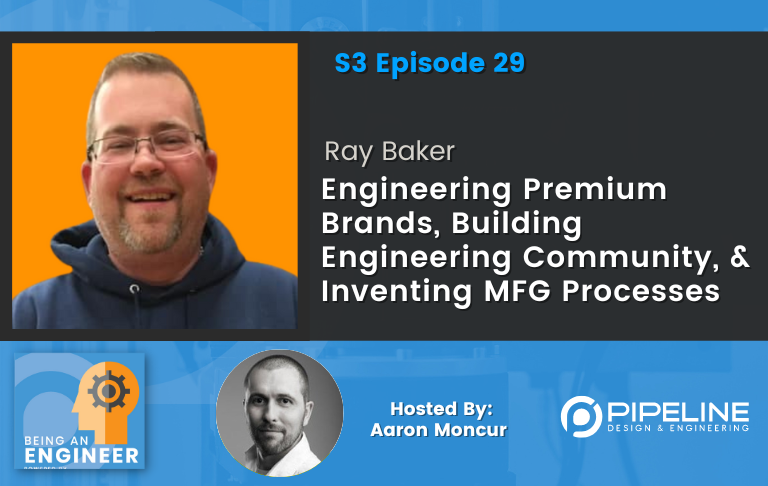
Who is Ray Baker?
Ray Baker is the business development manager at IJ Research (a leading supplier of hermetically sealed brazed assemblies). He has held roles in sales, pneumatic applications specialist as well as accounting, and holds an MBA in business, management and marketing. And as if that weren’t enough, Ray also DJs and emcees parties.
EXPAND TO VIEW EPISODE TRANSCRIPTION
SUMMARY KEYWORDS
engineers, people, application, braised, companies, product, call, ceramics, specialist, podcast, smc, learn, uncomfortable, piece, pneumatics, talk, comfortable, welding, usa hockey, play
SPEAKERS
Presenter, Ray Baker, Aaron Moncur
Presenter 00:00
Hi everyone, we’ve set up this being an engineer podcast as an industry knowledge repository, if you will, we hope it’ll be a tool where engineers can learn about and connect with other companies, technologies, people, resources and opportunities. So make some connections and enjoy the show.
Ray Baker 00:18
They are asking for more of the applications guys to help them out, because they have a bigger scope that they have to work on. So if they can take that little piece and give it up somebody that’s qualified within that specific realm, or application or product manufacturer, to them, that just helps them out immensely.
Aaron Moncur 00:52
Hello, and welcome to another exciting episode of The being an engineer podcast. Our guest today is Ray Baker, who is the Business Development Manager at IJ research, a leading supplier of hermetically sealed braised assemblies, Ray has held roles in sales, pneumatic applications specialist accounting, and holds an MBA in business management and marketing. Ray. Thanks so much for joining us today on the show.
Ray Baker 01:17
You got it. Aaron, thank you for having me. It’s awesome.
Aaron Moncur 01:20
All right. So we met at MD and M, recently a big medical device, trade show conference, and you stopped by our booth. And we chatted and you actually have your own podcast and we got to talk and we thought this would be cool to to have you on the show. Interestingly, you are not an engineer, no problem there. We We love all engineering adjacent fellows individually and equally here on the show. But you are certainly linked to or working within the the kind of engineering manufacturing related space. How did you get started there? What What was the journey like that brought you into your your kind of manufacturing related role here?
Ray Baker 02:03
Great question, man. So late 90s, early 2000s FM radio, and the midnight shift just was not cutting it. So you have to get into a better nine to five. And that’s what I started with SMC pneumatics. And that was the first venture into it. Right? And it’s, I think, when you first get into something like that, you kind of realize the totality of what they do and who they serve. It’s a little overwhelming.
Aaron Moncur 02:34
I Excuse me for interrupting, you didn’t or correct me if I’m wrong. Did you have any technical background? I mean, you were doing FM radio? So I guess a little bit of a technical background, but in the engineering or manufacturing space? No,
Ray Baker 02:48
not at all. And even less, even less than than pneumatic side of it. Right? Yeah. Because that’s kind of what they’re doing. They’re doing the metal components. It’s so it took me I spent there almost a decade there a little over nine years there. Just learning every day about that kind of thing. And then I think once you get into that realm, and that, you know, you start networking with that industry, if you will, everybody knows everybody. And so yeah, you kind of you kind of start knowing all the players and who they are, and it just kind of took off from there. But before that, I mean, a sound engineer, maybe. And that’s what you and I kind of when I came by the booth area in Anaheim, was, I saw what you were promoting, but I saw it too. Sure. Mike’s at a stand with my headphones.
Aaron Moncur 03:39
I gotta talk to this guy, for sure we have something in common. Absolutely. So starting at SMC what, what surprised you about just the you mentioned the totality of what they do? What was that like coming from a background where you didn’t really have experience with pneumatics? Or manufacturing or engineering? Was it was it a pretty steep learning curve drinking from the fire fire hose, so
Ray Baker 04:03
to speak? That’s such a great analogy that I’ve used it so many times. You’re absolutely right. I mean, it’s just there’s so much that they did and so many products and so many applications you get into and I remember the first three or four days of working there and they had these catalogs at the time that look like literally look like Bibles. They were you know, leather bound and really thin parchment kind of paper and it was printed. And there were four of these Bibles. And it was information, like you wouldn’t believe on this thing. And I thought to myself, I am never gonna this is incredible. So I think after you’re constantly learning for something like that, but I think after the first year to really just kind of, you know, getting into that it starts to make a little bit of sense and the totality comes into where you don’t really I think for me anyway, you don’t realize where all This is in your everyday life, until you get a job like that. And you start seeing wear pneumatics. And we’re certain things are used in everyday products, from light bulbs to dog food, how your toilet paper rolls, I mean, it’s it’s incredible. So to see that firsthand and kind of see the behind the scenes stages of it was pretty cool.
Aaron Moncur 05:21
Any applications in particular that you can think of that were just really cool to you? You looked at it and thought, wow, I had no idea. That’s how it was done. How cool.
Ray Baker 05:31
Yeah, and I will say this to this day. I always think about how somebody sat in a room and thought of, let’s make this machine to do this process faster. So we covered every Anheuser Busch plant in the country, there’s 12 of them. And one is right here in Southern California. It’s in Van Nuys, California. And we did a lot of work there. And to see a machine that can can bear at 2400 cans a minute. It’s just 100
Aaron Moncur 06:04
cans of
Ray Baker 06:06
amazing. So the one that we did in Houston actually does 2600 cans in a minute, think, terrible. And so they came to us and tasked us to be like, hey, there’s a vision system that looks at each one of these cans as it comes with them by what we want to do is if this cat has a defect of some sort, we have to pop that out of line, and not disrupt all the CANS behind it. So thick, if you will of a baseball going by, right. And as the baseball is going by and hardly 10 miles an hour, you just got to stick your hand out and pop it out of the air. Kind of what it was right. So yeah, it’s it’s amazing to see that and get tasked with something of hey, it’s just a blur. How do I pop one of those out. So it took the better part of eight months to develop and design it. But if you if you’re ever in the van eyes or Houston Anheuser Busch plants, there is a small panel that will pop out one candle by itself and that’s ours.
Aaron Moncur 07:13
Man that is a fast air cylinder. Incredible.
Ray Baker 07:16
Yes. air cylinder, the valve, the fittings,
Aaron Moncur 07:20
read the whole package. Yeah. Alright, so as we’ve talked about, you worked at SMC your application specialist there you also in a similar role at a company called destacado, which we use their their toggle clamps all the time, we love to stay cool clamps. So I think a lot of engineers out there, especially those of us in the the tooling and automation world are familiar with those companies. One of the things that I have loved especially about our SMC reps here is that we can give them a problem and kind of have them do some of the work for us. Right? So we don’t have to hunt through. Like you said, the four Bible’s full of all these products, we can just hand over a problem statement, hey, we need a air cylinder that moves about this fast that fits was within this this package size? Can you find it for us? And you know, give us all the things that we need? How How should engineers be using application specialists? Is what I’ve said right now, is that the right way? And something that not just me but other people on my team have wondered is that, you know, us engineers, we approach the application engineer the application specialist and say, we’ve got this this knee? Can you help us with it? And oh, it has to do this? No, it has to do that. Do do Thea the specialists helping us ever think to themselves? Or? Or is there ever? The kind of feeling of I’m not supposed to be doing your job engineers, you got to take care of all that stuff. You know, tell me exactly what you need. And I’ll write you a quote for it. But that maybe you can talk about all all of that stuff. Just for a few minutes. Yeah,
Ray Baker 08:53
there’s there’s a difference right when I started when we really started at my towards the end of my career at SMC and then when we moved to the Seiko based in Michigan up there, it’s we got excited when we got projects, when engineers would come and say, look, here’s what I have. It’s got to turn this thing, it’s got to do it this fast and stuff like this and give us all kinds even if it was a napkin drawing. It was exciting for us because now they’re pulling us into that realm. But usually it was just for a piece, one small piece of a larger project. So as an as the engineer said, the engineers have this gigantic product or project that they have on their table. We maybe just one or two little pieces of it. Right. Great example is the guys at JPL. The guys at JPL believe me are way smarter than me. So when they come to us and say hey, we need this little valve and it’s gonna do this and it’s gonna blow up this little tire and do all this and can you work on that? I have no problem working on that with those guys because I know whatever I’m working on goes on machine that I’m well under qualified to look at right.
Aaron Moncur 10:02
This is NASA JPL Jet Propulsion
Ray Baker 10:06
Labs. Yeah, here in Southern California. So I think for that sense that the engineers, I think there’s been a shift in this, right where now it’s, they are asking for more of the applications guys to help them out, because they have a bigger scope that they have to work on. So they can take that little piece and give it up somebody that’s qualified within that specific realm, or application or product manufacturer. To them, that just helps them out immensely, right? Because then it’s, I said, there was two sizes, right? There’s the order takers, like you mentioned, hey, I need this fitting or for me, great. Got it, I’m done. Well, there’s no engineering that, right. But if I, if the guy tells me, yeah, but it’s got to swivel one’s gonna do this, and I can’t find anything. Awesome. Off I go. Now, it may take me a couple days to figure it out. But once I do, that, I’ve been able to do something for those engineering groups that they could have done on their own. But they don’t have time to do that they have other sections of this that they have to concentrate on, to make sure that the whole product or the whole project works. If I’m just a small piece of that, even better. So I think that’s really kind of gained a lot of steam over the last maybe four or five years, where each one of these companies now have these specialists that can go help and feel like, Look, I am a specialist in all of the SMC products, or all the stinko claims. One of mine was I’m sure you’ve heard these two is Camco, indexers, which are big, stationary indexers, the index dial plates for different kinds of machines. Hey, let me take that and engineer it for you. And they give you all the details and data sheets and stuff like that. So that it’s completely off your plate. That’s becoming a really big factor. Now some of these guys’s scope of work, if you will.
Aaron Moncur 12:04
So what I’m hearing you say, Ray, correct me if I’m wrong here is that a? It is within reason, of course completely acceptable for engineers to approach application specialists and ask them to do a little bit of the legwork on their behalf. And be a lot of the application specialist might even prefer it that way. Because it’s more interesting question to answer.
Ray Baker 12:26
It’s not You’re not taking an order you’re getting involved in the project. So gives you a little bit more of a sense of worth of Hey, little thing that does this little widget over here on this airplane. I had the tiniest little thing to do with this. Birthday. Yeah, I helped out with that. I mean, there’s been, as you will know, there’s a lot of projects that we’re not allowed to talk about. But there’s a lot of stuff that was with NASA JPL and aerospace stuff that we’ve helped out over the years that are in everywhere, every day scenarios on aircraft somewhere. So it’s it’s just, you know, again, a little bit more self worth that I was able to help out with a bigger project.
Aaron Moncur 13:03
Yeah, well said, that’s great. Okay, now, I’m going to sidetrack a little bit here. You did a stint on your own DJing and emceeing events and parties. I have to hear a little bit about that, where like, where did that even come from?
Ray Baker 13:17
So this is so goofy came from. My kids begin school. And so when my kids were going through elementary school, we would have different carnivals, and parties and dances and stuff. And they all asked, we’ve looked for people to DJ and emcee our events, and that has a good voice and it just has fun with the kids and wants to do it. And so I did it a couple times. And I had a blast. And it kind of took me back to my radio days where I can, you know, you’re on a live shoot somewhere and you’re just playing with the crowd and having fun stuff like that. And that’s kind of where that got birth was from that right? So now we just do the cities, the city of Huntington Beach, the city of LA Murata always has me out to do like their farmers market. We do a live on the weekends, we do live radio from the waterparks. So we play music and do contests just like a radio station would be on on campus or on location. So it’s just it just came from that and it’s it’s a blast to do and just interacting with people. It’s just a lot of fun. And I never thought it would become anything at all. I’m like, God, it’s just it’s fun for me, but if you’re like, hey, we come back and do it. We’ll pay you and I went oh let’s go back to the theme park Yeah, it’s just from that it’s again, it’s just a love of of doing sound and being on the radio and just just interacting with people and then that kind of snowballs into like what we were talking about. Before our show today was a podcast and stuff like that. And so doing sound engineer And, and directing and stuff for podcasts, trying to do my own and that kind of thing. It’s just fun because it puts you back into that realm of, you’re talking to people you’re having your own radio show. And that’s really what a podcast is. It’s your own radio show, with your own limits, if you will, your own content, your own guests you’re doing. It’s a lot of work, as you will know. But it’s so much fun in the end.
Aaron Moncur 15:27
Yeah, for sure. Yeah, I love the autonomy of it. Right? You get to speak with all these interesting people. And you’ll learn a lot. It’s just it’s a win win for everyone. I think
Ray Baker 15:36
you’d be shocked at what people will you ask somebody, Hey, would you come on our podcast? They say, yeah, no problem. Wow, really.
Aaron Moncur 15:47
It’s so much.
Ray Baker 15:48
And it’s a great way to meet different people of a different, like for this one. For engineering, I listened to a lot of the episodes you’ve had already. Just interesting, intriguing people from all kinds of different industries. And it kind of opens it up that way for everybody.
Aaron Moncur 16:03
Yes, speaking of NASA, JPL, we had one of their system engineering directors on our show a little while ago, Davido. And he was just wonderful. And I thought to myself, Wow, this guy’s gonna talk to me. That’s, that’s pretty cool.
Ray Baker 16:18
Yeah, anytime we I get emails or phone calls from the guys at JPL or anything like that. I’m like, Okay, this is important. This gets smarter than me. But this is gonna be fun, I promise.
Aaron Moncur 16:30
All right. Well, clearly, you have some varied experience. You have an MBA, you’ve been an industrial application specialists, you’ve done marketing, business development, DJing, and MC. Why do you think you’ve gotten you sought out like, all these different kinds of experiences? Were you looking for something in particular, or you just you just like being, you know, having a variety in life,
Ray Baker 16:58
love the variety, but there is one constant denominator in all of them. And that is there as a people person or business that’s behind it, right? I love going out interacting with people and talking to people about different stuff. I always like before COVID I always love to be on location. So they said, Hey, we have this new application. Great. I’m on my way, I’m gonna come see you. We’re in Denver. I don’t care where you are, I’m gonna come see. I think there’s that. I don’t know what, how you really want to call it. But there’s that personal kind of touch to it. When you’re in front of somebody, and you get to interact with somebody, even over virtual stuff like this is not bad. But I think there’s just something to that. So there’s always that personal connection I always wanted to get and when you talk about going from, you know, industry, industrial stuff that we’ve done, all my business stuff, the business stuff that comes with being the DJ, and podcasting and stuff like that. It’s it all comes down to that same personal factor to it. Yeah, so it’s much as the varieties there. I just love interacting and talking to people.
Aaron Moncur 18:03
All right, well, I’m getting the sense that you’re almost kind of a performer in a way, you know, ah, seeing and there’s probably a performer elements if I could dig it. Okay, cool. All right. Well, coming back into the kind of engineering manufacturing side of things I was looking at the company that you’re working for now. Ij research, was looking at the website. And it was so interesting to me, that, it seems like anyway, from the outside looking in ij research is is very niche, right? They do hermetically sealed braised assemblies, which just is like the epitome of of a niche market, which is great. And I thought to myself, here’s this company that’s been in business for nearly 35 years, focused on this one, tiny, I don’t know how tiny it is, but it just seems very narrow, not in a bad way, but hermetically sealed braised assemblies, and how cool that is that you can have such a narrow focus and still build, you know, a wonderfully successful company that’s been around for nearly 35 years now. Has that always been the focus of IGA research? Or? Or has it kind of, you know, gone to the left and corrected to the right and explore different avenues? And eventually they ended up in this hermetically sealed brace assemblies? Or is it just that’s always what it’s been?
Ray Baker 19:25
That’s always what has been? I know it sounds super weird. And there’s only maybe 334 or five companies on the planet that do what we do that right. So you’re right, that the niche part of that is just dead on accurate. 98 I believe is when it first started. Dr. Rick Yun is the gentleman who started the company, I did research and a chemicals, got a doctorate in chemicals, and so figured out ways and this is really cool. I didn’t know this until I even started here, but figuring out ways that you can Combine or join dissimilar materials. So there’s a lot of chemistry, a lot of science that goes into it. But if you’re, if you’re welding something, you’re welding a piece of metal to a piece of metal. And that’s how a lot of people do that braising as a kind of welding, right. But then you get into thermal expansion of chemicals, if it’s a piece of metal, if it’s a piece of ceramic, a piece of glass and trying to join all that together, you really got to know your stuff. And so Dr. Yoon, back in the day figured out how to join dissimilar materials by doing different methods and using different precious metals and starred in different ceramics and figured out the secret sauce and how to do it. And so when he figures this out, he kind of throws it out to everybody says, Hey, I got a way to do this. And IG research is born and thrived from there. And so that’s kind of what we still do to this day, a lot of it is aerospace loves defense, a lot of it is medical, where we’re joining pieces of metal to pieces of ceramic. A lot of times, it’ll be for like a window assembly. So you’ll have a window in a piece of metal, but it has to be hermetically sealed. And when I say that, I mean nothing can get through it, no air, no water, no dirt, nothing. So hermetically sealed is it sealed to the point that nothing’s getting past it. And that little window may be going inside your body for a camera for endoscopy surgery could be on a laser system on a on a missile or on an aircraft that’s pointing down at something to track something. It could be on a number of different things. You’d be surprised as you start kind of looking around the different industries, where that’s located, it’s everywhere. And again, it’s just kind of one of those, like you mentioned an industry that not normally we don’t think about where that would be where they go. But now when you’re kind of sitting in my chair here, it’s like, wow, yeah, that’s pretty cool. There’s companies right now working on what are called a feed through, and there’s pins on one side, a ceramic plate in the middle, and then pins on the other side, and is basically feeding through electricity from one part of your body to another. And there’s medical companies right now that use those for cochlear implants. So people can hear that maybe couldn’t have heard before. They’re actually using a spinal surgery so that people that aren’t getting that electrical signal from the top half their body to the bottom where they can’t walk. Now they’re putting those into people where they’re able to walk again. So huge medical breakthroughs, huge aerospace and defense breakthroughs with stuff just like this.
Aaron Moncur 22:41
That’s amazing, wonderful examples, too. Thank you for sharing those. You mentioned that bracing is a kind of welding. Can you talk a little bit more about that some people might not really understand what bracing is what what is bracing? Exactly.
Ray Baker 22:54
So bracing is when you’re joining materials or metals together. But you’re using it in extreme heat. So instead of a blowtorch or like a TIG welder or anything like that, that you’re just about welding something this you’re putting into maybe a hydrogen furnace, and I think one of ours that we’re using today or tomorrow is like 1400 C, and getting into crazy high temperatures, to be able to braise these and in a way that they’re a they’re not going to come apart. We like to use the term that we’re creating unique solutions for some of the more drastic applications. So a lot of ours will go into space. So when you put something on a spacecraft, it’s going to heat up, it’s going to go through the atmosphere, it’s gonna get crazy high, then when it gets out of the atmosphere, that temperature is going to drop to the floor. So you have what’s called a thermal shock. So a lot of our parts that we make and manufacture will go through that thermal shock, so that we make sure that that those two pieces of material that are joined together aren’t going to come apart at some of those extreme applications.
Aaron Moncur 24:00
And braising is a more effective process for doing that than your typical welding. Correct. Got it?
Ray Baker 24:07
Okay. Do you want to hermetically sealed which again, nothing going in around? That’s really the only way to do that. You can’t you can’t achieve that anywhere else.
Aaron Moncur 24:15
Yeah, great. All right. Well, I’m gonna take just a short break here and share with the listeners that Team pipeline.us is where you can learn more about how we help medical device and other product engineering or manufacturing teams develop turnkey equipment, custom fixtures and automated machines to characterize inspect, assemble, manufacture and perform verification testing on your devices. And we’re speaking with Ray Baker today. Ray, you are the business development manager over there at IJ research, what are the day to day responsibilities of being in a business development role? You know what what are a few specific things that you’ve done in that role that that you can share?
Ray Baker 25:00
request. A lot of it is what we describe to each other internal is blocking and tackling. We know it sounds weird. I’m a former hockey player. So we always like to put stuff in the sports metaphors to help people. Right? Right. A lot of it is, obviously contacting all of our customers, getting new projects, getting new details in, but a lot of it is that simple, which is kind of lost, I think, in today’s world of blocking and tackling. And what I mean by that is following up and being there to take customers calls, showing up at their location to help them out, do little things like that, instead of a lot of times customers and engineers do this a lot. Where though, I’ve got this quote, here it is, here’s how much it’s gonna cost and they throw it over the fence, and then they walk away to the next customer. Okay, well, what happened with the quote, you throw the fence three days ago, they have no idea. That’s where we come in. So we try to kind of help that whole process of getting information, making that connection with customers quoting that, but then following up with them, and almost putting ourselves at least for me, putting myself in the shoes of the customer. of why is it going to help them? Why should they make the decision they’re going to make unless it’s a very, like you mentioned, very niche market, the stuff that we do is not cheap, it’s gonna cost you a couple dollars, right? So try to make that decision for our customers a little bit easier, by explaining everything to them and kind of hold their hand like, you don’t understand that. You’re not the expert embracing. We are, you’re the expert in making whatever is your these engines and engine sensors. I have no idea how to build an engine, you do. I know how to braise all this stuff to help make that engine. So you’d be your expert, I’ll be mine. And together, we’ll be successful. So that’s kind of what I do from day to day. In that sense.
Aaron Moncur 26:55
That’s great. Can you let’s say that, I am just starting out as a junior business development specialist. And I’m trying to figure out my footing, what do I do? How do I spend my time effectively? Are there any like really tactical actionable piece of pieces of advice that that you could give to anyone out there listening like that?
Ray Baker 27:19
Yeah. And it’s I didn’t come up with this, but it’s magical. And the first second I heard it, I had to try it. I went through training with some of my guys at Sandler. So it’s the people who Sandler is and done some of the Sandler Training.
Aaron Moncur 27:33
They’re also done, Sandler, I’ll plug Sandler there. They’re wonderful. They’re amazing. So
Ray Baker 27:37
Mike Jones, and Ken Guess Who are my two guys that trained me to have the most amazing people on the planet. I love both those guys. And one of the things that Ken taught me was, detach yourself from the result. So what I mean by that is, a lot of the guys are getting into sales, or getting into business development, and really trying to help companies get to that next level, you’re going to make a lot of calls, you’re gonna make a lot of send a lot of emails, you’re gonna make a lot of connections. And I think a lot of people get hooked on, I made 10 calls, how come no one call me back? Or I talked to three people. And all three of them said, No, they don’t need my services right now. So everybody gets hooked on that results. I have to have two people say yes, I have to get one order. No, detach yourself from what the results gonna be. If you had your system, and you stick to your system, and you know your system works, forget about what nose or yeses you get. And stick with that system and plug away because eventually it will work. The system is has been designed and laid out for you. I trust I trust that it’s going to work. So that’s what I have to do. And I will tell you, it’s been one of the best pieces of advice I’ve ever gotten. Wow, forget about what yes or no. So you get it as long as you stick to your system on that paper. You’re gonna win.
Aaron Moncur 29:04
Just keep plugging away doing the things you know, you need to do to be successful and forget about the granular, you know, low level results.
Ray Baker 29:12
Keep your head down and keep moving forward and love it. You’ll get there.
Aaron Moncur 29:15
Yeah, I remember when I sat down with us and it was Brad Ferguson shout out to Brad, if you’re listening out there. He was my coach at Sandler. And I signed up for a six month training, which was not inexpensive. It was like six grand or something. And I remember as he was signing me up, he gave me a piece of advice that it was like worth the price of admission right there. He said to me, take what’s on the inside, put it on the outside and talk about it. And what he meant was, inevitably you’re going to be in a sales process and something’s going to come up and you’re gonna have this feeling inside of you like oh, that’s I don’t think that’s a good idea or I’m hesitant about this or I don’t think they’ve really thought that part through or whatever. that feeling is going to be and you’re going to feel like I don’t I shouldn’t say anything about this because it’s, it’s awkward or it’s inappropriate, or they might take offense to it. Those are the situations he was talking about, take what’s on the inside, put it on the outside and talk about it. And that has been such wonderful, wonderful advice for me, right there that was worth the, the $6,000 price of admission, of course, I learned a lot more, but just that alone was hugely valuable.
Ray Baker 30:23
There’s a few things right, they always take away from you. Right? That’s one of them. And one of the things that my guys Mike in Canada always said was get comfortable with being uncomfortable. Oh, yeah. So get get out of your comfort zone. Right. It’s your loves. Someone’s gonna say no. Okay, that you know what, I’m always asking you for that. No, I’ve always want that. No, because, you know, what, if this is not gonna work for you, okay, socks will work for you. I’m cool with that. It’s not I have well, let me tell you why you shouldn’t say no, no. It’s okay. Right now. It’s not good for you. That’s cool. Because remember, I have a system. And I don’t care what the result is. So right now it’s no okay. Mr. Customer. That’s great. And I listen, I totally understand why you would say no, right now. So I’ll tell you what, we’ll put that over. If you need me again. Here I am, follow up the three months, we’re done. I then move on to the next one. So that’s not easy for people to do. Right. As I met, like you like you were saying, take what’s inside Paralia outside and talk about it? Or get uncomfortable. It’s not for everybody. And it’s, it’s hard to do. It’s scary. It’s not you know, you first like talk about it. Yeah, I can do that. And then you put into the situation. Can you do it? I didn’t want to really talk about that. Exactly.
Aaron Moncur 31:43
It’s not it’s not easy, but I
Ray Baker 31:46
guarantee it works. The guys teach you in a certain way on how to do that. It’s uncomfortable. It’s gonna be uncomfortable. But as soon as you kind of see as you do it once or twice, right? Anything you do scary, right? I went indoor skydiving once. I will never do it again. But I didn’t once right. And I didn’t want to do it. But I did is I have the experience of doing that. So I think you just again, just get uncomfortable. embrace that. Move forward.
Aaron Moncur 32:15
Yeah, yeah, I’ll tell you another great way to become comfortable with being uncomfortable is I’ve been doing jujitsu for a while now. I started up and did it for several years, then I stopped for a while. And I’ve started up again now. And it is it is so valuable to me in the sense Well, exactly that it it trains me to be comfortable being uncomfortable, because I tell you what, when you are armbar, and underneath some guys, you know, sweaty crotch, my language, but it is not comfortable. You’re getting choked out, and you can barely breathe and you’re about to blackout. It is not comfortable. But you learn mentally to like cope with that. And I think it makes you. For me anyway, it made me more resilient just to everyday situations and stress and things like that.
Ray Baker 33:05
It’s a lost art. Yeah, for sure. It’s sorry. Like I said, it just, it takes once or twice of doing it and getting like either just getting comfortable with it. Okay. But once I’m comfortable with that, I know how to kind of face that adversity, right? I don’t want to do that. Because I’m afraid of well, what are they gonna say? I’m really gonna say it doesn’t matter. Get out there, get get going. Do it. And once you get comfortable with it, sky’s the limit.
Aaron Moncur 33:28
Absolutely. All right. Well, we’ve been talking a lot about some of these communication, soft skills, business development skills. For for the engineers out there who maybe business development is not their path, they just want to be a really good engineer, based on the interactions that you have had with engineers working as an application specialist over the years, what are one or two of the tools you think that maybe are missing for engineers that they’d be able to get a lot of use out developing new products more effectively?
Ray Baker 34:04
That’s such a great question. There’s so many tools out there right now. But I think the biggest thing is there’s so many resources out there. To know that you don’t know everything is key. And I know that sounds weird, right? I am an engineer and I’m an electrical engineer. So or I’m a mechanic is the greatest one. I’m a chemical engineer. I’m just at school. I know everything mechanical. No, you don’t trust me, you don’t. So there’s a lot of resources out there. Go find them and use those resources. Guys like me that have been application support applications engineers for so long. That no specific products. That’s all I train on is that specific product. You as a mechanical engineer, you’re trying to get this thing to work. It’s not just my product is probably 10 of them. Great. Go find all 10 of those resources, and use them that’s what they’re there for. And really take in because if you’re just out score. If you’re two or three years in, you’re gonna find a guy that’s got 2025 years experience. And he may tell you, you know what, Eric, I would have used that I would use this. But here’s why. And just kind of take all that in. That’s the biggest thing is there’s a lot of what we call tribal knowledge. It’s an industry. If you find it, hang on to it. Make sure you’ve got his phone number when he retires.
Aaron Moncur 35:21
Yeah, absolutely. Yeah. All right. Well, I would love to hear you talk about if you’re comfortable sharing what is the most scared you’ve ever been? And how did you handle that situation? And kind of what did you learn from it and feel free to take this either from a personal or professional standpoint? Either one?
Ray Baker 35:43
Wow, that is a great question. Probably the first time that I knew I was gonna be on television to play hockey,
Aaron Moncur 35:53
oh, man, like get the ball flies flying around.
Ray Baker 35:56
Yeah. When you when you when you play in arenas and barns everywhere, and it’s you know, your uncle and your mom and deal for family members. That’s one thing. The first time that you light up, I played defense. So the first time I lined up for a face off in the offensive zone kind of bent over I look over and there’s a guy holding a TV camera. You just want to throw up everything. So college hockey, or it was college hockey that when I finished college hockey, Vermont, I came back to California I was in camp for the Kings was in camp for the camp bullfrogs and stuff. Yeah, I think it’s, it’s, you kind of realize real quick, I wasn’t the best player in the room. And now there’s a lot of people watching me and they’re gonna realize I’m not the best player. And so but you know what, it’s, it’s it. I say all those journeys, and all those times that we were uncomfortable and scared to do something and you persevered and did it anyway, it’s kind of what makes you who you are. Right? Yeah. So it’s, there’s been a lot of times like that I told you, I mentioned I went indoor skydiving. I want to know part of this. And my sister said, Hey, we’re gonna go it’s your this DJI. If you’ve never seen these that they’re called I fly believe that’s the name of them. And it’s basically just a giant tube with air cranking through it as if you jumped out of an airplane. Yeah. Yeah, that I did not want any part of that. So you go in there, and you’re in this tube you’re flying around for I think it’s like three minutes, and then you get off and you go back in for another three minutes. So it’s the longest six minutes of your life. But I’m glad I did it. It was fun. Now, I told you before, never again, when I do that.
Aaron Moncur 37:45
Once is enough. I did the one time off the bucket list. I’m good to go. Kudos to you. That’s very cool. All right. How about this? What is the best gift that you have ever given someone?
Ray Baker 37:57
Wow. That is such a great question. This is gonna sound weird. And I don’t like to say this about myself. But I would say that I’m a dad to three girls. And the gifts that I’ve given my wife of 20. Next month, actually, June will be 24 years marriage, and three kids. So I think my greatest gift is just going home every day and being the best dad and best husband. I can I can be. And there’s good days and bad days we all have. To me that’s that’s what’s been given back to me. So I just tried to get back there.
Aaron Moncur 38:37
That’s wonderful. That’s thank you for sharing such a personal thing. It’s it’s nice to hear people open up and talk about that stuff.
Ray Baker 38:44
Absolutely. That’s what it’s all about. Absolutely. Yeah.
Aaron Moncur 38:48
Well, let’s see what just a couple more questions and then we’ll we’ll wrap things up here. What was the worst career advice you’ve ever got? And and maybe, conversely, what was the best?
Ray Baker 39:02
Go out and hit that kid who’s six 440 pounds and make sure that you hit him so he knows that you’re there. And that’s the best. I know, it wasn’t worse than I’m like, five, seven. I’m like a buck 10. And, you know, coaches telling you to do things that you have no business physically doing, right? That was one of the worst. One of the best came kind of from the same timeframe, though is is and I carry this to the companies that I work for. And what I do is, and you’ve heard this in movies, but I had a coach actually tell us to us that I don’t play for the number or the name that’s on the back of my jersey. I play for the logo that’s on the front of my jersey. So it doesn’t matter what logo I’m wearing. I have to be loyal to that team. Yeah, I’ve got teammates around me that were the same logo. So you know, you never leave anybody behind it really, really, really down. If you’re wearing that same us in hockey, it’s our sweater. But if you’re wearing the same sweater, if you’re wearing the same logo, the same jersey, whatever it may be the same polo at a trade show, what have you just to be loyal those teammates, because they’re going to help you out? You got to help them out. So that loyalty is probably the best best advice ever.
Aaron Moncur 40:16
Yeah, I love that at the end of the day, there’s no such thing as a company, right? It’s just a group of people who are working together. It’s all about the people.
Ray Baker 40:22
Exactly. Yeah, you got it, you go home, and then you come back to the same people day in and day out. So if you’re loyal and you have trust in them, they’re going to do the same for you. And that’s how success breeds.
Aaron Moncur 40:32
Yeah. Well, what else? Should we talk about that? We haven’t yet? Wow,
Ray Baker 40:36
we’ve covered a lot, right? Yeah. You don’t want to the biggest thing is I tell people go out and do what you want. Right? Like, there’s so many people right now that are probably listening to your show and have listened to your show. And be like, Man, I could do a podcast or it could be an engineer. Okay, go do it. Like, what are you waiting for? Like, to me maybe because you already know how to do a podcast. So for me, if someone tells me says hey, I want to do my own podcast. My answer is like, let’s go. When are we taping? I want to do it tomorrow. Like it’s that’s so much fun. Yeah, I want to go back to school. Okay, what are you waiting for? I got my MBA at the age of 45.
Aaron Moncur 41:24
Nice congratulation, right. So
Ray Baker 41:26
there’s always time to do it. There’s, there’s it’s just what’s holding you down? I don’t know, great, call me. I’ll give you my email. Email me, we’ll talk I’ll tell you how to get through it. Don’t get to the next level, do what you want to do. Don’t let it hold you back anymore.
Aaron Moncur 41:44
You know, I think for me, anyway, one of the most valuable things about going through the engineering curriculum, the learning process of becoming an engineer. And I’m not saying that engineers, you know, have some kind of monopoly over this. But for me, personally, the most, the most valuable thing from my education was learning how to learn, not necessarily just the technical things that I did learn, but like the process of figuring out how to learn something. And I, I had no idea how to start a podcast, right? I’m an introvert. I’m an engineer for crying out loud. I don’t like talking to people. I kind of I kind of do a little bit, but I’ve just introverted engineer. I didn’t know how to start a podcast. I just, I just did it, like you said, and I think that’s one of the it’s a great thing about being an engineers is you learn how to figure things out and mean in life. What what what greater blessing is there than being able to just go figure something out?
Ray Baker 42:44
And cause like, I’m constantly wanting to learn new stuff. I think when Long story short, through high school, right after high school, I was supposed to get drafted with the team USA Hockey and in 1992, ran for the EA games actually, is when I started really trying to get into USA Hockey in 1992. They let pros play. So that ended my USA Hockey career. My mom passed away. I didn’t go right off to college. So I had all kinds of stuff happen at that at that point, right? And so now like, I always tell my kids, can I go to school with you? Like, I would love to, like, relearn some of this stuff. And like just constantly, like, soak it. And my kids are like, Dad, you’re a geek, why would you want to go back to school? Because it’s, trust me, it’s my age, and we follow you. So constantly trying to find avenues and find ways to learn new things. So one of the things you mentioned is, you know, I’ve been in the different industries, because I love learning those new technologies, and how they all kind of are somewhat incestual in a case with those industries is everybody’s using kind of all these different industries to make one big thing. Yeah. And so I love to just kind of dissect that. And as engineers do reverse engineering, figure out how it works and how to get it together again and do all that and I’m, I’m that engineer at heart, but then I’m extrovert, I want to talk to everybody.
Aaron Moncur 44:15
And hence the business development manager role. That’s perfect. Absolutely. Absolutely. Well, Ray, this has been a delight. How can people get in touch with you?
Ray Baker 44:26
So you can check out our website is AJ research.com. Our sister companies superior technical ceramics, so all the ceramics that we use come from them as well. And that’s just ceramics.net and then you can email me if you’d like to. I’ll give you my email. It’s our Baker at ceramics. dotnet. No matter what it is, I don’t know how to start a podcast. I don’t know how to order ceramics. I don’t know how to tell. I don’t know how to play hockey or how to my girlfriend motto is It’s over. Whatever it may be. I
Aaron Moncur 45:02
might need to contact you.
Ray Baker 45:05
That’s a whole nother show Aaron we can do.
Aaron Moncur 45:07
That’s right dating advice from Ray Baker rounds. Exactly.
Ray Baker 45:13
We used to do it way back in my college days. I did a short radio show for lonely State University on their internet radio. In fact, internet radio was brand new. So we did love at the beach and we had all kinds of bands coming in and stuff like that. And people would call it all the time, like, Okay, I’m gonna break up with my boyfriend. How do I do it? I’m like, Alright, let’s get him on the phone right now. Let’s do this. That’s a whole bunch. If you want to start to show you let me know. We’ll take care of people for sure.
Aaron Moncur 45:40
So nice. Awesome. All right. All right. Well, well, thanks again so much for sharing some of your time and insight and wisdom with all of us
Ray Baker 45:47
Anytime Aaron, you let me know.
Aaron Moncur 45:52
I’m Aaron Moncur, founder of pipeline design and engineering. If you liked what you heard today, please share the episode. To learn how your team can leverage our team’s expertise developing turnkey equipment, custom fixtures and automated machines and with product design, visit us at Team pipeline.us. Thanks for listening
We hope you enjoyed this episode of the Being an Engineer Podcast.
Help us rank as the #1 engineering podcast on Apple and Spotify by leaving a review for us.
You can find us under the category: mechanical engineering podcast on Apple Podcasts.
Being an Engineer podcast is a go-to resource and podcast for engineering students on Spotify, too.
Aaron Moncur and Rafael Testai love hearing from their listeners, so feel free to email us, connect on Facebook, Twitter, Instagram, and subscribe on Apple Podcast and Spotify!
About Being An Engineer
The Being An Engineer podcast is brought to you by Pipeline Design & Engineering. Pipeline partners with medical & other device engineering teams who need turnkey equipment such as cycle test machines, custom test fixtures, automation equipment, assembly jigs, inspection stations and more. You can find us on the web at www.teampipeline.us
You’ve read this far! Therefore, it’s time to turn your headphones up and listen now to this episode to learn all these. Don’t forget to tell your friends who might like this too!

